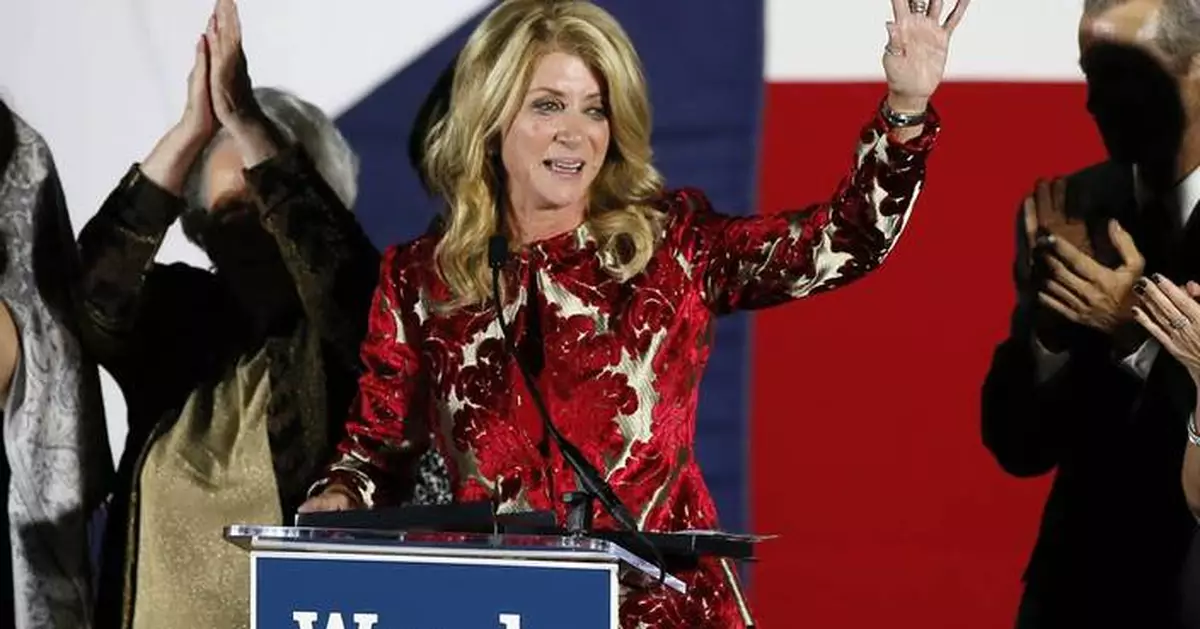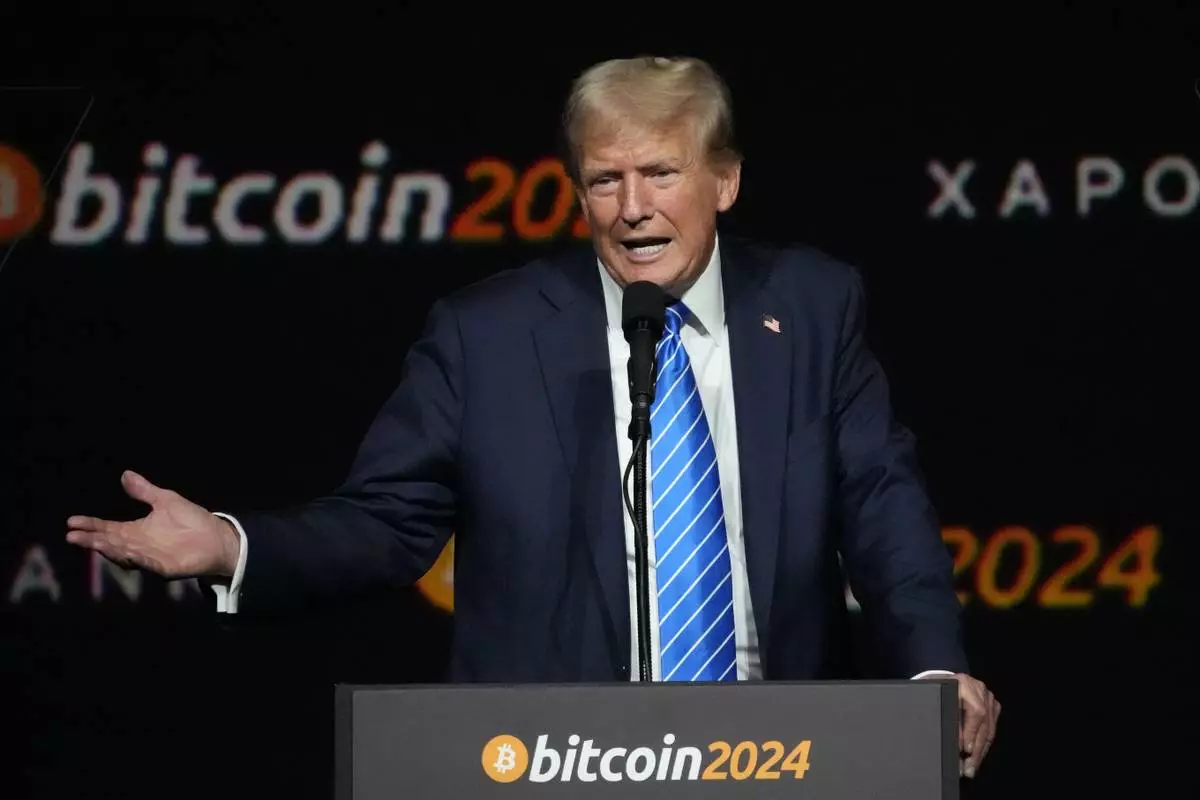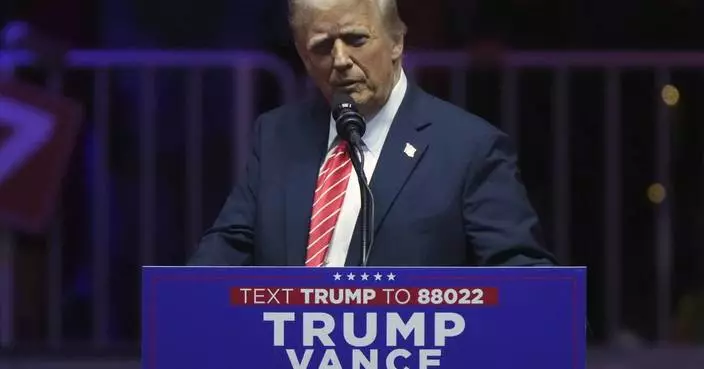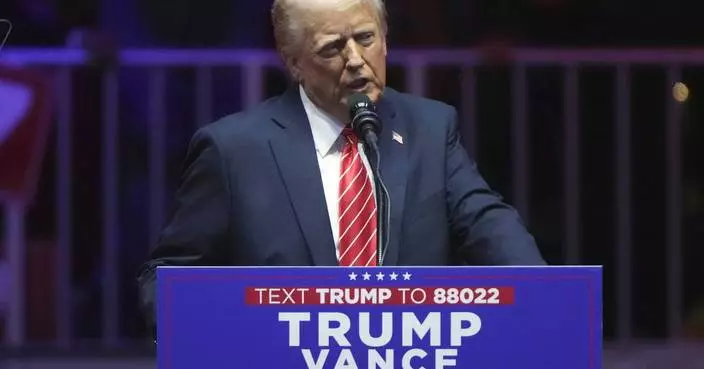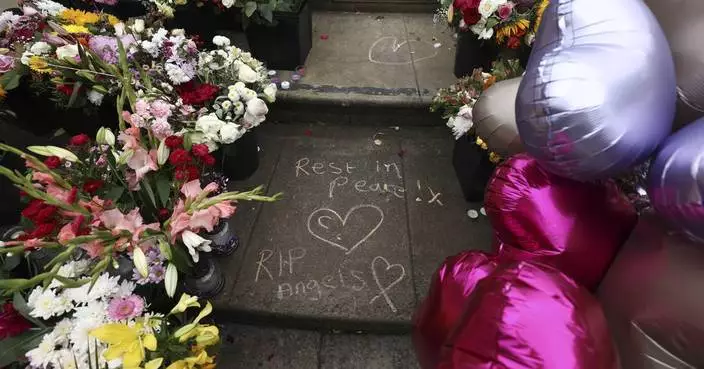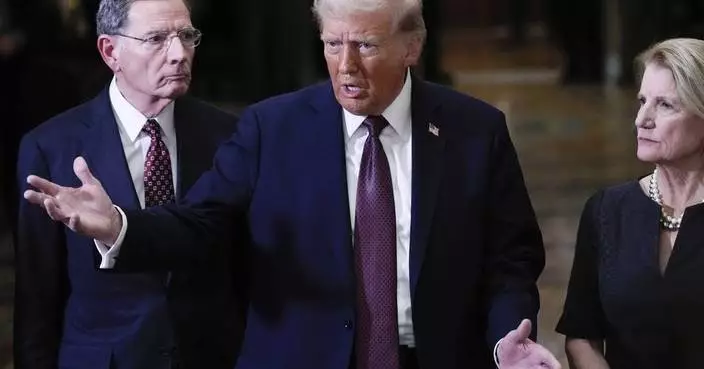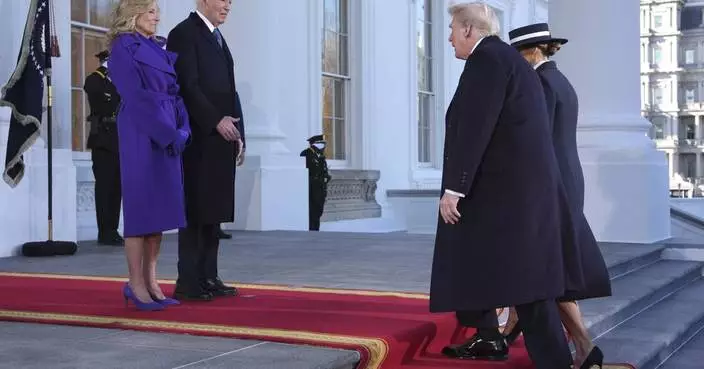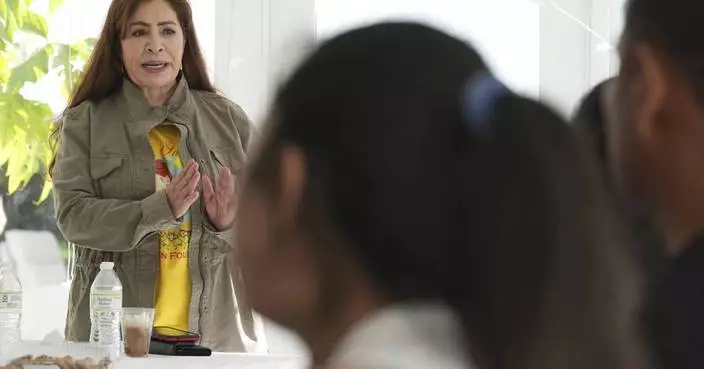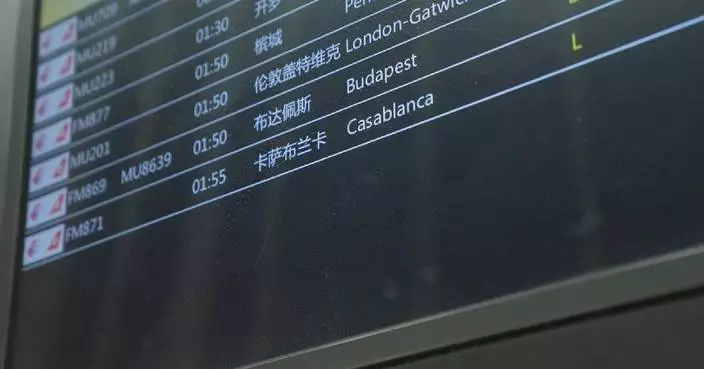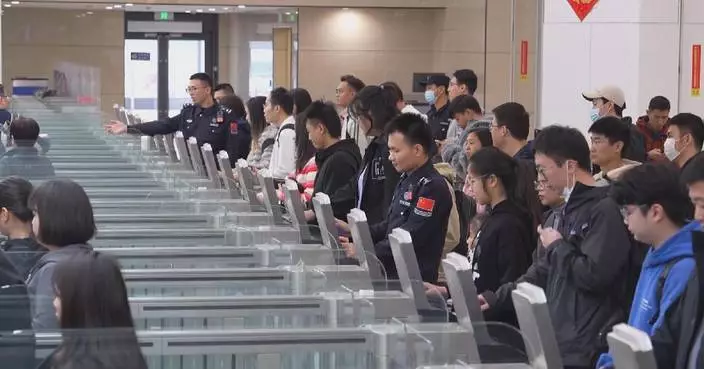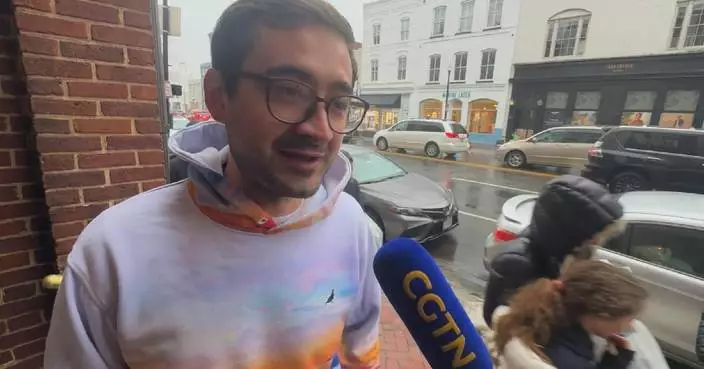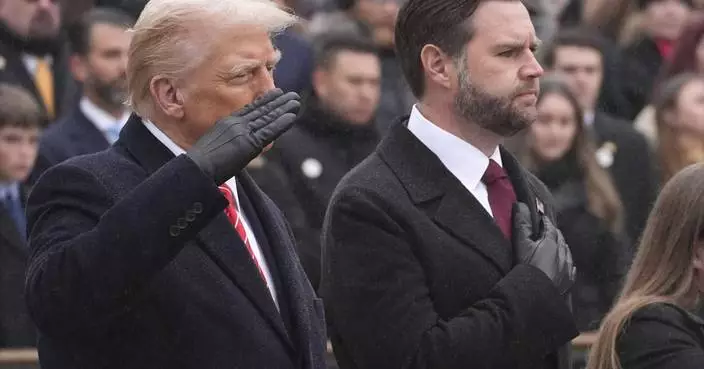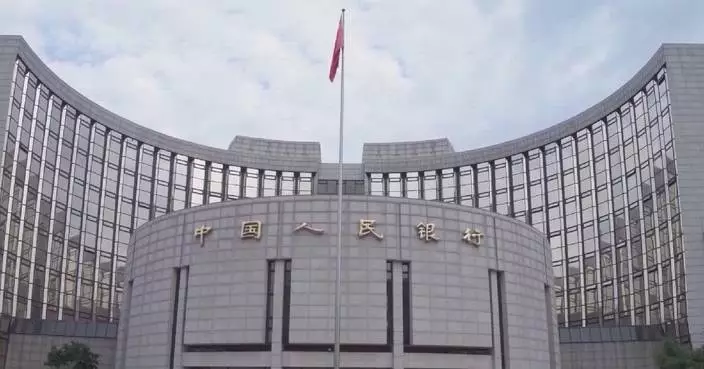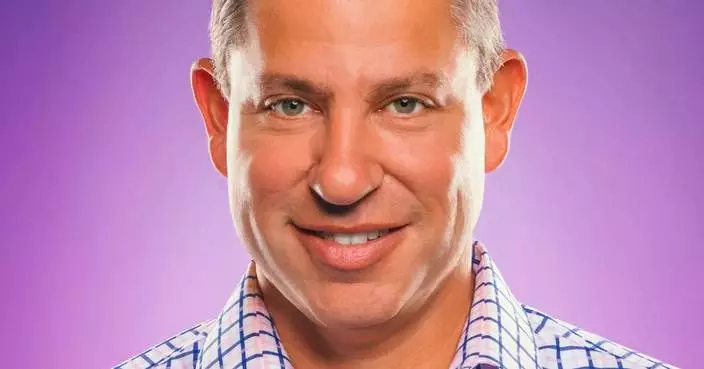AUSTIN, Texas (AP) — On a busy Texas highway days before the 2020 election, former Democratic lawmaker Wendy Davis used her phone to record the scene unfolding around their Biden-Harris campaign bus: A convoy of President Donald Trump supporters weaving close while her fellow passengers called 911 for help.
In a federal court in Austin on Monday, a jury watched the video filmed by Davis — who ran for governor in 2014 — on the first day of a civil trial that seeks to hold some of those Trump supporters responsible for what Davis and others on the bus say was an intimidating threat of political violence.
"It was a day that was very different from anything I experienced campaigning,” said Davis, who testified that she felt riddled with fear and anxiety.
In opening statements, a lawyer for Davis and the other plaintiffs argued that the six “Trump Train” drivers participated in an orchestrated attack aimed at intimidating people on the bus and making the campaign cancel its remaining events in Texas.
The defense argued that the drivers did not conspire against the Biden-Harris campaign bus that day, and instead joined the train as if it were a pep rally. They also claimed that the bus had several opportunities to exit the highway on its way from San Antonio to Austin.
“It was a rah-rah group that sought to support and advocate for a candidate of their choice in a very loud way,” attorney Francisco Canseco said.
The civil jury trial over the so-called “Trump Train” comes as Trump and Vice President Kamala Harris race into the final two months of their head-to-head fight for the White House in November.
Democrats on the bus said they feared for their lives as Trump supporters in dozens of trucks and cars nearly caused collisions, rammed a Biden-Harris campaign staffer's car and forced the bus driver to repeatedly swerve for safety. Videos of the confrontation on Oct. 30, 2020, including some recorded and shared on social media by the Trump supporters themselves, show a group of cars and pickup trucks — many adorned with large Trump flags — crowding the campaign bus, boxing it in, slowing it down and keeping it from exiting the highway.
“For at least 90 minutes, defendants terrorized and menaced the driver and passengers,” the lawsuit alleges. “They played a madcap game of highway ‘chicken’ coming within three to four inches of the bus. They tried to run the bus off the road."
The highway confrontation prompted an FBI investigation, which led then-President Trump to declare that in his opinion, “these patriots did nothing wrong.”
Davis rose to prominence in 2013 with her 13-hour filibuster of an anti-abortion bill in the state Capitol. The other three plaintiffs are a campaign volunteer, staffer and the bus driver.
“We felt overwhelmed by what was going on and we didn't have any support,” Davis testified.
Monday's trial ended with the defense beginning their cross-examination of Davis and will resume Tuesday. The trial is expected to last two to three weeks.
The lawsuit, which seeks unspecified monetary damages, accuses the six named defendants of violating the Ku Klux Klan Act, an 1871 federal law to stop political violence and intimidation tactics.
The same law was used in part to indict Trump on federal election interference charges over attempts to overturn the results of the 2020 election in the run-up to the Jan. 6 U.S. Capitol insurrection. Enacted by Congress during the Reconstruction Era, the law was created to protect the right of Black men to vote by prohibiting political violence.
On the two previous days, Biden-Harris supporters were subjected to death threats, with some Trump supporters displaying weapons, according to the lawsuit. These threats in combination with the highway confrontation led Democrats to cancel an event later in the day.
Canseco said before the trial that his clients acted lawfully, exercising their free speech rights and not infringing on the rights of people on the bus.
“It’s more of a constitutional issue,” Canseco said. “It’s more of who has the greater right to speak behind their candidate.”
The trial judge is Robert Pitman, an appointee of President Barack Obama. He denied the defendants’ pretrial motion for a summary judgment, ruling last month that the KKK Act prohibits the physical intimidation of people traveling to political rallies, even when racial bias isn’t a factor.
While one of the defendants, Eliazar Cisneros, argued his group had a First Amendment right to demonstrate support for their candidate, the judge wrote that “assaulting, intimidating, or imminently threatening others with force is not protected expression.”
“Just as the First Amendment does not protect a driver waving a political flag from running a red light, it does not protect Defendants from allegedly threatening Plaintiffs with reckless driving,” Pitman wrote.
A prior lawsuit filed over the “Trump Train” alleged the San Marcos Police Department violated the Ku Klux Klan Act by failing to send a police escort after multiple 911 calls were made and a bus rider said his life was threatened. It accused officers of privately laughing and joking about the emergency calls. San Marcos settled the lawsuit in 2023 for $175,000 and a requirement that law enforcement get training on responding to political violence.
Lathan is a corps member for The Associated Press/Report for America Statehouse News Initiative. Report for America is a nonprofit national service program that places journalists in local newsrooms to report on undercovered issues.

FILE - Then-Texas Democratic gubernatorial candidate Wendy Davis waves to supporters after making her concession speech, Nov. 4, 2014, in Fort Worth, Texas. (AP Photo/Tony Gutierrez, File)


